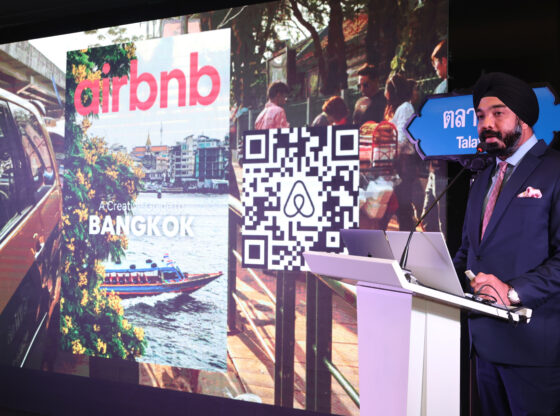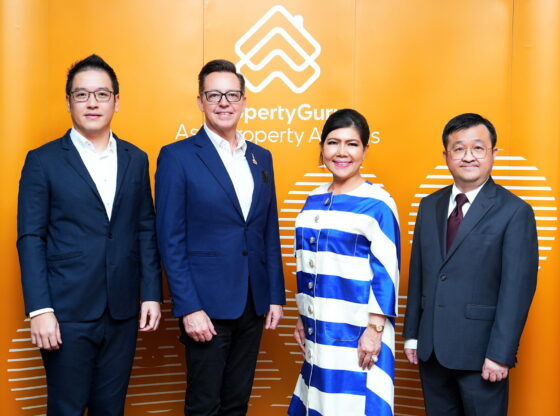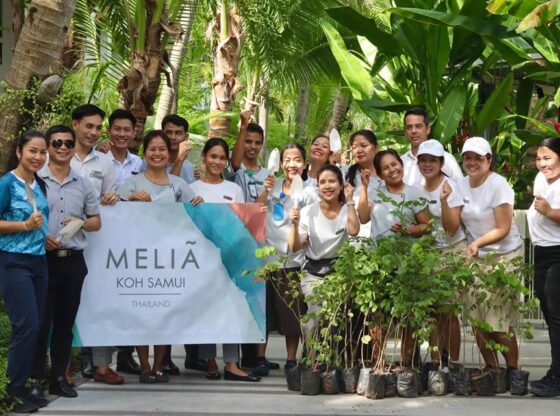![]()
Domestic violence in Thailand during COVID-19 has increased 66%
In response to a surge in gender-based violence globally as a result of lockdowns during the COVID-19 pandemic, Twitter today launched local language search prompts in seven Asia Pacific countries, including Thailand. When people search on Twitter for Thai keywords associated with gender-based violence, they will see a notification in Thai language directing them to the hotlines of local organizations where they can seek help, together with a list of NGOs that can provide support they need.
According to Dr. Ratchada Jayagupta, Senior Researcher/Lecturer, Institute of Asian Studies, Chulalongkorn University and representative of Thailand to the ASEAN Commission on the Promotion and Protection of the Rights of Women and Children (ACWC),
“During COVID-19, domestic violence in Thailand has increased 66%. This is a serious issue that everyone must be aware of. With Twitter’s #ThereIsHelp initiative we hope those in need will be heard and reached, and that it has a positive impact in reducing this problem nationwide.”
Building on Twitter’s notification service on mental health and suicide prevention, vaccination, child sexual exploitation and COVID-19, Twitter is the first technology company to launch a dedicated gender-based violence search prompt for hotlines and support in local languages in Asia Pacific.
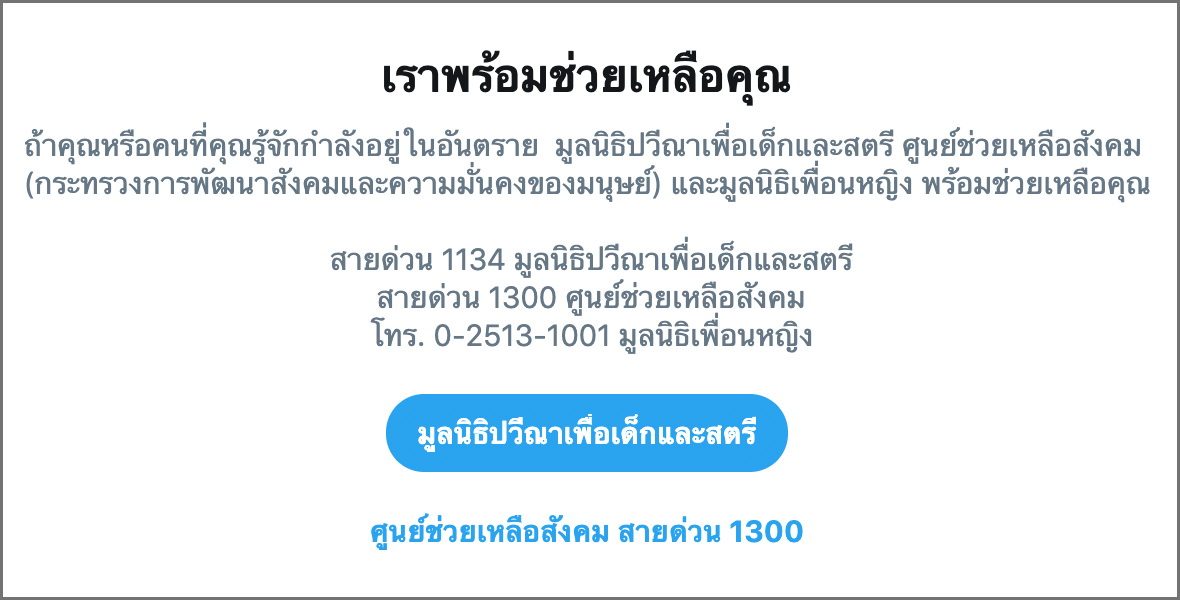
As the UN Secretary General António Guterres has repeatedly called out recently, the global lockdowns announced during the COVID-19 pandemic have resulted in a “horrifying surge” in gender-based violence, which further deepens existing gender inequalities given the burden of caring for other vulnerable individuals at home — such as young children and/or sick or elderly family members — falls disproportionately on women.
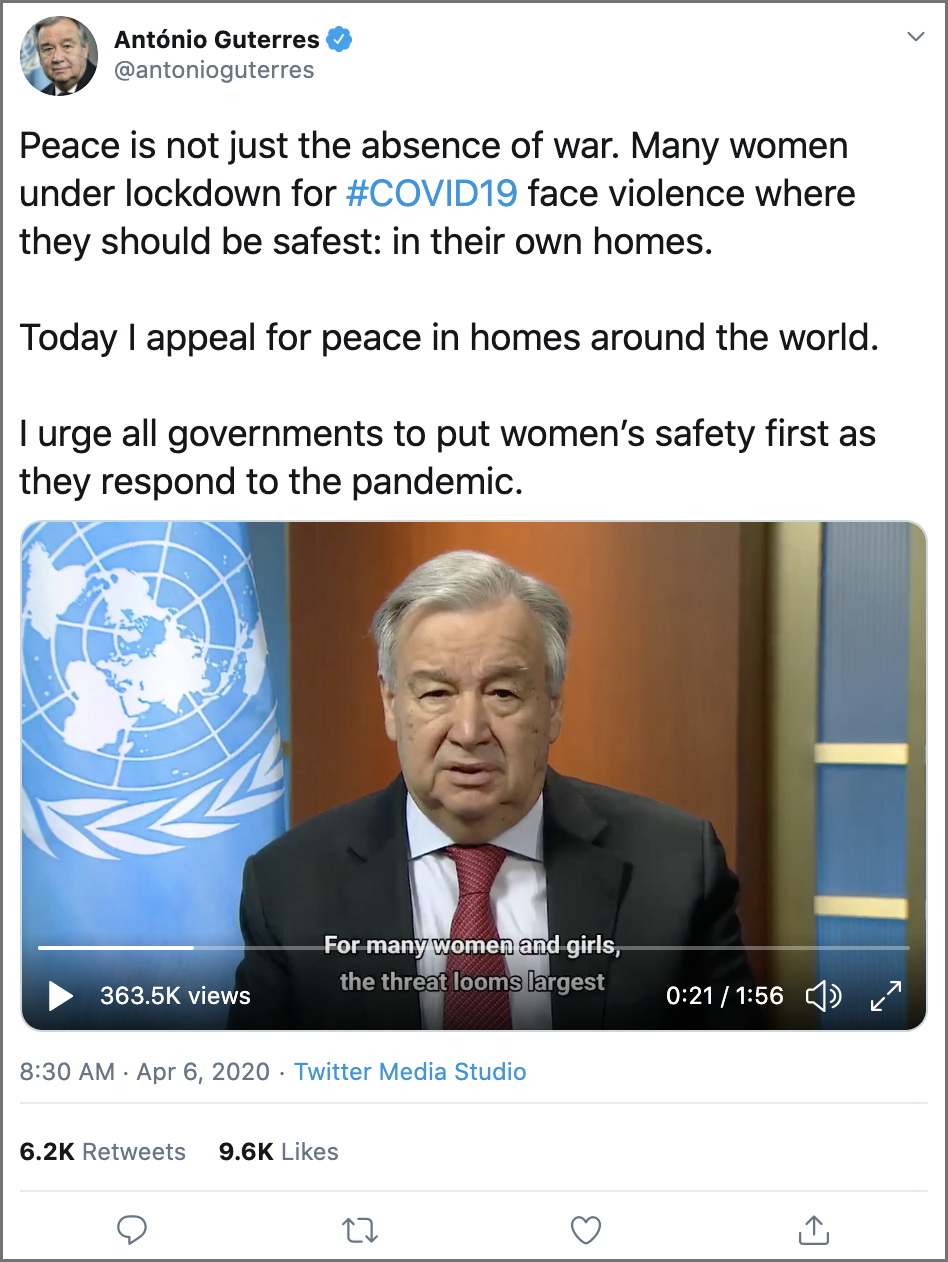
In close partnership with UN Women Asia Pacific who played an advisory role, as well as leading NGOs and government agencies that provide critical emergency care, support and counselling, this service is now available in seven APAC countries including Indonesia, Malaysia, Philippines, Thailand, Singapore, South Korea and Vietnam. We plan to expand this service in the near future to other countries across the region in the coming weeks and months.
#ShadowPandemic on the rise during COVID-19
According to the latest report by UN Women, 243 million women and girls aged 15-49 globally have been subjected to sexual and/or physical violence perpetrated by an intimate partner in the past 12 months. Emerging data shows that since the outbreak of COVID-19, violence against women and girls, and particularly gender-based violence, has intensified across the globe.
“Violence against women and girls across Asia Pacific is pervasive but at the same time widely under reported. Globally, one in three women experience violence at least once in their lifetime. In fact, in many countries in our region, the number is even greater, with as many as 2 out of 3 women in some countries reporting experiences of violence,” says Melissa Alvarado, UN Women Asia Pacific Regional Manager on Ending Violence against Women (@unwomenasia).
“Less than four in 10 women experiencing such violence actually report these crimes or seek help of any sort. As lockdowns and stay-at-home orders are getting prolonged by countries around the world to contain the spread of COVID-19, women with violent partners increasingly find themselves isolated from the people and resources that can help them.”
“At UN Women, we hear that keeping services open has been hard in many countries. We are pleased to team up with Twitter to help connect women to local services currently available in their countries if they are experiencing violence or abuse.”
For example, national data from India indicates that gender-based violence has increased more than two-fold in at least 4 states in the north, while the reported cases from an NGO in Indonesia has recorded a tripling. The hotlines for women and children in Malaysia have also reported a 57% increase in calls while government orders aimed at controlling movement are in effect. Similar trends are seen in Singapore and South Korea as well.
United in the fight against gender-based violence
We recognize that collaboration — public, private and non profits — is a key to combating the complex issue of gender-based violence. We believe this partnership via the #ThereIsHelp notification service will contribute to the efforts of local organizations ensuring people can access and receive support when they need it the most.
In Thailand, Twitter has partnered with trusted NGOs in this effort, as well as key national agencies providing services via the referrals of the #ThereIsHelp service as follows:
Pavena Foundation for Children and Women is an non-profit organization with the primary purpose of helping to alleviate the suffering of children and women who were raped or forced into prostitution domestically, here in Thailand and abroad.
Friends of Women Foundation, non-profit organization, provides information, support, referral and emergency financial assistance to women who have been victims of exploitation, violence and trafficking.
Social Assistance Center is a 24-hour service operated by the Ministry of Social Development and Human Security to receive reports related to social problems, including gender violence, human trafficking, child abuse, neglect and exploitation.
“The Social Assistance Center is pleased to work with Twitter to launch a #ThereIsHelp search prompt that provides key hotline numbers for women and children who need help. It’s important that people who are struggling are seen and heard so that they can get the help they need,” says Mr. Sanongvitt Phuvonthamart, Director of The Social Assistance Center.
“Twitter is pleased to launch this unique product feature dedicated to addressing gender-based violence,” says Kathleen Reen, Senior Director, Public Policy and Philanthropy, APAC at Twitter.
“We are honoured to collaborate with critical partners across the region and are deeply grateful for their support. We look forward to supporting them in their efforts to reach and aid their communities during COVID-19 and beyond.”






